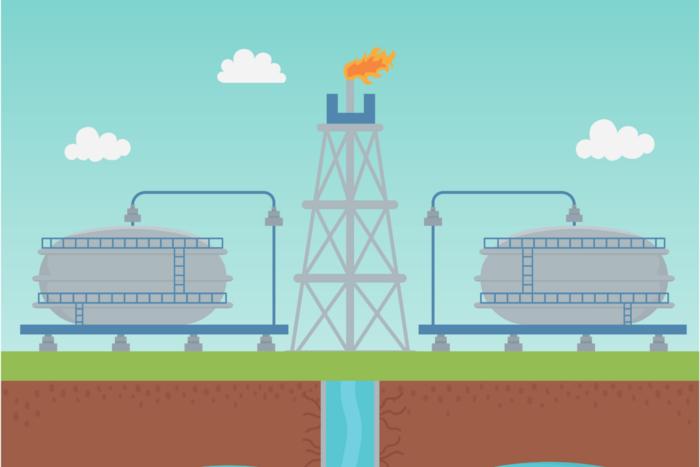BINGHAMTON, N.Y. — Energy companies use persistent and personalized pressure to get landowners to give permission for hydraulic fracturing (fracking), and even when landowners decline, companies use legalized compulsion to conduct fracking anyway, according to a new study led by researchers at Binghamton University, State University of New York and UNLV.

Credit: Binghamton Univerity, State University of New York
BINGHAMTON, N.Y. — Energy companies use persistent and personalized pressure to get landowners to give permission for hydraulic fracturing (fracking), and even when landowners decline, companies use legalized compulsion to conduct fracking anyway, according to a new study led by researchers at Binghamton University, State University of New York and UNLV.
“Hydraulic fracturing is a controversial issue, but a lot of the controversy has been focused on the big-picture consequences, for the climate and the economy,” said Benjamin Farrer, lead author and former PhD student at Binghamton University. “One of our hopes for this paper is that it will encourage policymakers to pay more attention to the individual experiences of the people who are closest to the issue.”
Because many fossil field reservoirs in the United States lie under private land, energy companies often have to negotiate with private landowners, offering compensation in exchange for access to the minerals under their land. Since a well is only economically viable if you can drain a large spatial area from a single well, drilling companies have to pool multiple mineral claims into a single working contract before drilling. But landowners often hold out from such deals for various reasons – they might be wary of the potential health risks, holding out for more money, or they simply might be unreachable.
This is where compulsory unitization comes in. It’s a law that many oil- and gas-producing states have in which if some percentage of the land on top of an oil/gas reservoir is owned by people who have already given permission for drilling, then the owners of the remaining land can be compelled to join the drilling. For example, if there are 1,000 acres of land on top of a gas deposit, and the owners of 650 acres have given permission, the owners of the remaining 350 acres of land can be compelled to join.
“Under conventional vertical drilling, the use of compulsion generally was a net positive for mineral owners – it prevented holdouts looking for better contract terms from tanking a project and it allowed small properties or properties along the border of a drilling area to force themselves into a contract if the drilling company tried to shut them out,” said Robert Holahan, associate professor of political science at Binghamton University. “Under fracking, though, where the drilling happens horizontally under multiple properties, compulsory unitization can force mineral owners who otherwise don’t want to lease their property to do so.”
A research team including Holahan, Farrer, and former Binghamton students Kellyanne Allen and Tara Riggs examined data from Ohio, a state that saw a boom in fracking in the 2010s. The team obtained the full online database from Ohio’s Department of Natural Resources, which covered every compulsory unitization application submitted in Ohio from January 2014 to April 2021, during the height of the fracking boom. The team reviewed a random sample of 37 applications, each of which included a log of every time a landowner was contacted about leasing, including the date, method and result of the conversation.
In one example, a landowner is opposed to signing a lease, but the company persists in its attempts to obtain her signature. The landman calls, sends letters and when those are returned with “REFUSED” hand-written across them, the landman drives to the landowner’s house. When the landowner refuses to answer the door, the landman speaks with her neighbors and family.
In another example, a landman contacts a landowner undergoing radiation treatment at a hospital. The landowner seems willing to sign but wishes to get home from the hospital before discussing it. However, the landman continues to contact them while they’re at the hospital for weeks.
“Overall, we find widespread use of personalized tactics like phone calls and visits, as well as evidence that these tactics are used persistently, as landmen make multiple attempts over multiple months to contact landowners. We also find that many negotiations end in compulsion rather than in consent,” wrote the researchers.
The evidence also suggests that compulsory unitization is being used in negotiations with many different types of landowners, rather than just with economic holdouts and unreachable landowners.
“Legal instruments, like compulsory unitization or pooling, are often designed to solve one type of problem (ensuring all mineral owners get a fair share of revenues from an oil or gas well), but eventually can be used for other purposes (forcing mineral owners to lease their rights),” said Holahan. “Effective resource policy requires a continuous updating of the law as technologies change.”
The researchers are conducting a follow-up survey with individuals whose conversation records were used in the paper to verify their accuracy. In addition, Holahan and his team conducted a survey of 3,000 people in the Twin Tiers of New York and Pennsylvania to assess opinions on drilling and wind turbines to better understand how, or if, ‘green energy’ is viewed differently from ‘conventional energy’ at the scale of property owners.
The paper, “Assessing How Energy Companies Negotiate With 31 Landowners When Obtaining Land for Hydraulic Fracturing,” was published in Nature Energy.
Journal
Nature Energy
Article Title
Assessing How Energy Companies Negotiate With 31 Landowners When Obtaining Land for Hydraulic Fracturing
Article Publication Date
19-Aug-2024



